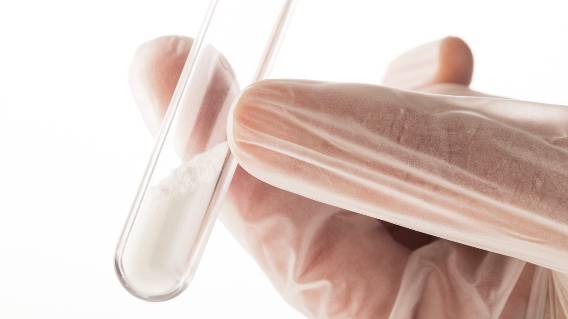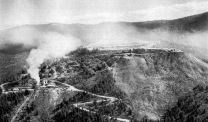J&J Sues Researchers Over Studies of Asbestos in Talc
Legislation & LitigationWritten by Michelle Whitmer | Edited By Walter Pacheco

Johnson & Johnson is suing doctors who published studies connecting the company’s talc-based personal care products to cancer. LTL Management, a newly-formed subsidiary that absorbed J&J’s talc liability in 2021, filed the lawsuits in May and July in federal court.
The litigation is seeking monetary damages and a retraction and/or a correction over studies that claimed the products contained talc tainted with asbestos and could cause people to develop mesothelioma cancer.
Attorney Mark Lanier represented 22 women in a successful talc lawsuit against Johnson & Johnson in 2018. He recently told a reporter from Chemistry World that he isn’t surprised by LTL’s latest legal action.
“This is an old tactic of J&J trying to squash scientific opinion through intimidation using its behemoth status,” Lanier said. “This was done in the 1970s when scientists tried to warn about J&J’s talc containing asbestos. I think this shows a level of audacity, if not desperation.”
J&J’s most recent lawsuit targets Dr. Theresa Emory and Dr. John Maddox, two pathologists affiliated with Peninsula Pathology Associates in Newport News, Virginia. It also cites Dr. Richard Kradin, a now-retired pulmonologist who worked at Massachusetts General Hospital Cancer Center.
Two months before this lawsuit, LTL also sued Dr. Jacqueline Moline of Northwell Health in Great Neck, New York, on similar grounds. Moline published an article in 2019 claiming that mesothelioma can develop after using talc-based products such as Johnson’s Baby Powder and Shower to Shower. The article reported that 33 people in the study had only been exposed to asbestos through J&J products.
LTL Management said some of the people in the study admitted coming into contact with asbestos by other means. LTL wants the identities of the patients to be revealed.
Suit Claims Research Is ‘Junk Science’
LTL Management alleges the research created what they call a “false narrative” about Johnson & Johnson and its products. They also said the research was based on “junk science.” The company accused the researchers of being financially motivated, claiming they earned a “small fortune” by testifying in court as paid experts.
Adam Zimmerman, a professor at the University of Southern California Gould School of Law, told Reuters news agency that it is unusual for companies to file lawsuits over research they don’t agree with. He said it will be difficult to prove the researchers intentionally harmed J&J’s reputation and that the lawsuit may be an attempt by LTL to take back the narrative concerning talcum powder safety.
“When a litigant starts suing opposing experts, that’s very aggressive. It sends a message that the gloves are off,” Zimmerman said.
According to court documents, Moline feels LTL Management’s legal action was filed as a way to “attack and silence” scientists. She also said she has an ethical obligation to protect the identities of those who took part in the research study.
Similar lawsuits were also filed by LTL against the same researchers in December 2022, but they were dismissed after being linked to the company’s first bankruptcy filing.
Johnson & Johnson’s Legal Issues
Johnson & Johnson faces thousands of lawsuits related to the company’s talc-based baby powder and other products, which many plaintiffs blame for causing mesothelioma, various cancers and other diseases. The company is working to resolve the cases and any future lawsuits through an $8.9 billion settlement.
In May 2020, J&J stopped selling its talc-based baby powder in the U.S. and Canada and instead switched to products that contain cornstarch. The company has stood by its claims that the use of Johnson’s Baby Powder and other J&J talc-based products are safe.
In 2018, an investigation by Reuters news agency found that Johnson & Johnson hid evidence of asbestos in its products for decades and also misled the U.S. Food and Drug Administration about the presence of the toxic substance in its products. The FDA later announced that it found asbestos-contaminated talc in nine out of 52 cosmetic products tested during a year-long review. Among the contaminated products was a bottle of Johnson’s Baby Powder.
Asbestos and talc are both naturally occurring minerals that form so closely together that the mining process may not separate them. The carcinogen can become trapped in the body through inhalation or topical migration. Over several decades, asbestos fibers can cause inflammation, scarring and cancer.






